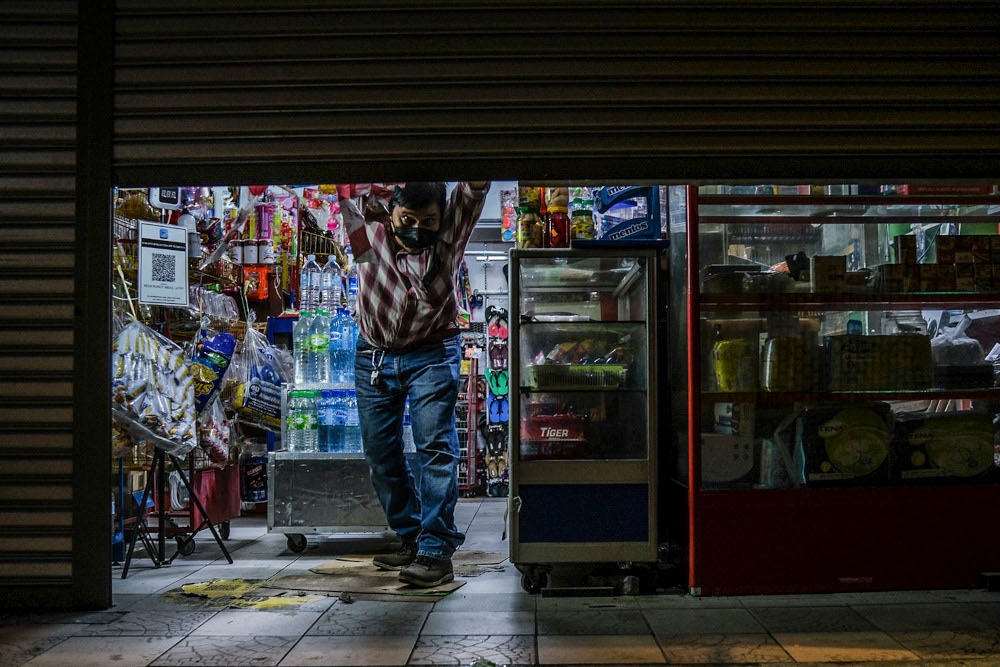MAY 31 — During MCO 3.0, majority of the economic sectors remain open despite a ban on social gatherings, dining-in at restaurants and travel across district and State borders. The government had previously announced that a second full lockdown will not be implemented because of the potential economic ramifications.
However, Malaysia’s healthcare system has been at its breaking point with the country grappling with highest daily rise of Covid-19 cases for the past week. The worsening outbreak and the country’s strained healthcare system have prompted the government to implement a Full movement control order (“FMCO”) or total lockdown from 1 to 14 June 2021, akin to the one imposed in March last year. The government has announced that all sectors will not be allowed to operate during the two-week period, with the exception of 17 essential economic and service sectors.
The aim of reaching herd immunity became the implicit goal in Malaysia. However, Malaysia’s inoculation to its general population is currently moving at a slower pace than initially expected due to the slow arrival of vaccines. As such, reaching herd immunity to restore normalcy might not be attainable in the upcoming months and a full lockdown may be the most viable way in making the virus a controllable threat.
Further pay-cuts and retrenchments during FMCO or total lockdown
A two-week total lockdown may not be sufficient to reverse the number of Covid-19 active cases and the lockdown may be extended further if Covid-19 numbers do not reduce. A full lockdown could lead to many Malaysians being unemployed and would throw a harder punch on vulnerable groups.
This time around, the government has not announced any financial assistance or wage subsidy for businesses during FMCO or total lockdown. Businesses have been financially strained or in ICU for the past year and they would need to further control their base cost to ensure sustainability in order to protect as many jobs as possible. Some of the most likely cost-cutting measures by employers to preserve business viability during FMCO would include freezing headcount, instituting unpaid leave, removal of some non-contractual allowances and benefits, forced annual leave, pay reduction and reduction in working hours.
Businesses may have to implement further cost-cutting measures if the Covid-19 situation persists without improvement, without which closure of business will be the only option. More employers may opt to hire fixed term employees for a specific period and purpose as one substantial cost-saving initiative.

The government, employers and employees are inter-dependent during difficult times
Companies will have to survive in order to hire or pay salary and employees will only be employed and be paid salary when companies have sustainable financial health. Therefore, the government ought to have thorough policies for business survival and is urged to step in to help employers with assistance package to reduce unemployment rate.
Businesses will also need to learn how to survive in new routines outside of the traditional processes by ensuring that business operation continues despite sudden lockdown initiative by the government, which may be announced anytime during uncertain times.
Effective work from home (WFH) arrangement becomes very crucial, where employers will need to implement proper WFH arrangement without affecting work productivity, creativity and innovation. New modes of surveillance should accompany the WFH arrangements.
Covid-19 is and should be a catalyst to reinvent the future of work and create opportunities for businesses to look at things differently to survive.
Let’s stay at home to flatten the Covid-19 curve together.
Leonard Yeoh is a partner and Pua Jun Wen an associate with the law firm, Tay & Partners.
** This is the personal opinion of the writer or publication and does not necessarily represent the views of Malay Mail.





















